Taking advantage of the proximitiy of the MWC celebrated in Barcelona, we experimented with trying to measure the impact it has to the city through a very specific prism: social media.
In an already very touristified city, the landing of the MWC in 2009 became one of the most impactful events in the city throughout the year. In 2018, 107.000 people from 205 different countries “boarded” the city for 3 days to attend the event, flooding hotels and restaurants, collapsing public transportation and ultimately altering the landscape of the city.
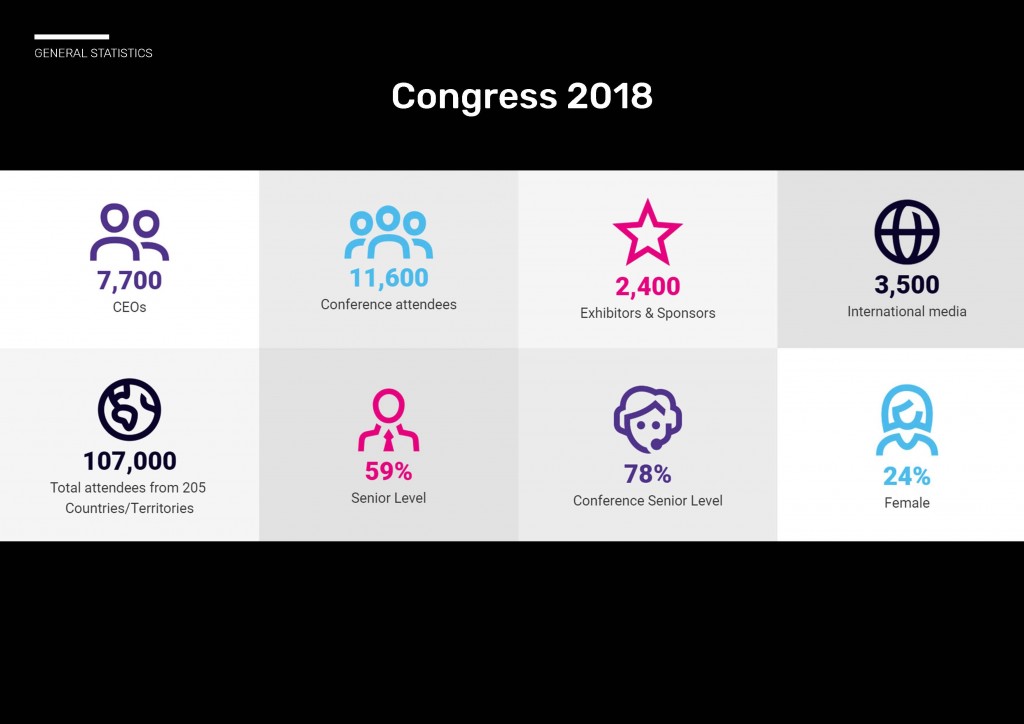
Analysis:
We’ll perform the analysis in three different steps:
- Step 1: using python code, we will collect tweets produced in specific areas of Barcelona in a specific time and with specific keywords, that will both relate directly to the Mobile World Congress (#MWC, #mobile, etc), or to the city (#BCN, #Barcelona, #turisme, etc).
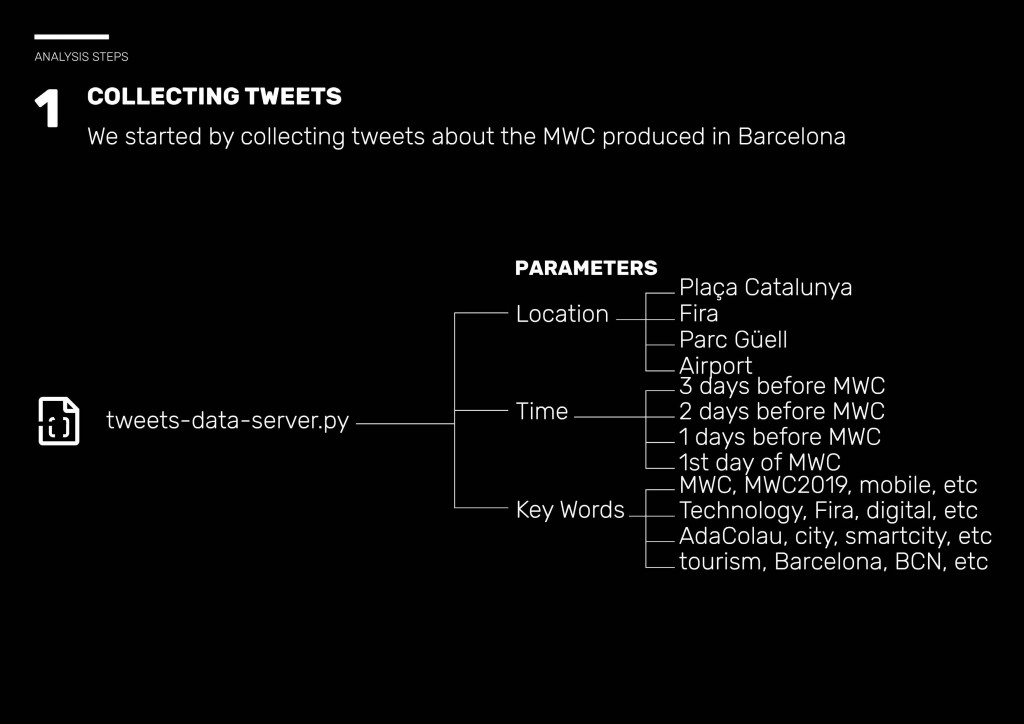
- Step 2: we will organise these tweets in files, collecting information about where and when they were created, as well as their relevance (likes, retweets, etc).
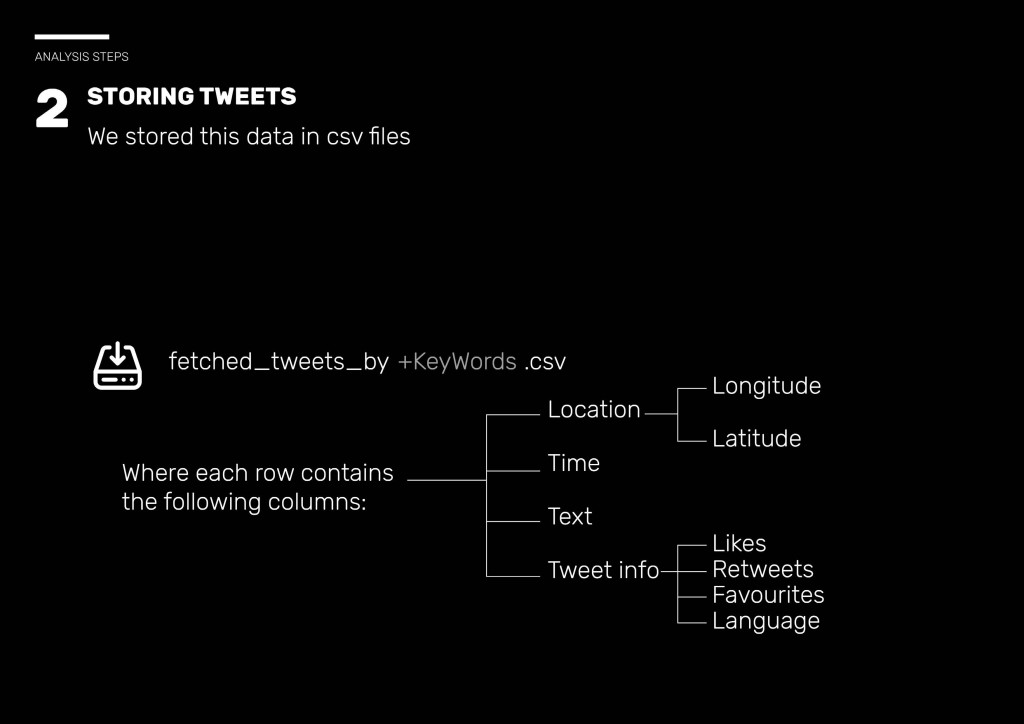
- Step 3: the last step is more critical. We will use an existing algorithm to analyse their sentiment value, from positive to negative in a range. This is a blackbox for us, as sentiment analysis is a complex code that is constantly learning, so we lack the knowledge on how perfected this algorithm is, and how adptative it is to the multilingual aspect of the tweets we collected.
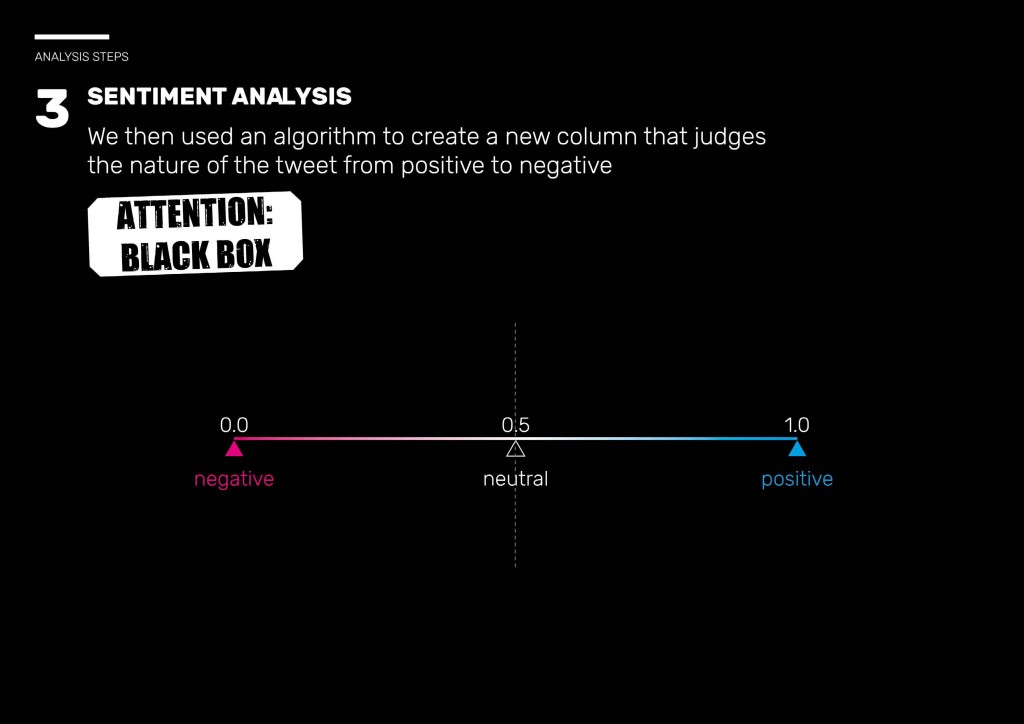
Visualisation:
With our stored and organised data, we can do statistical readings of our tweets, the sentiment analysis being only the last statistics produced.
We looked at
- most used words:
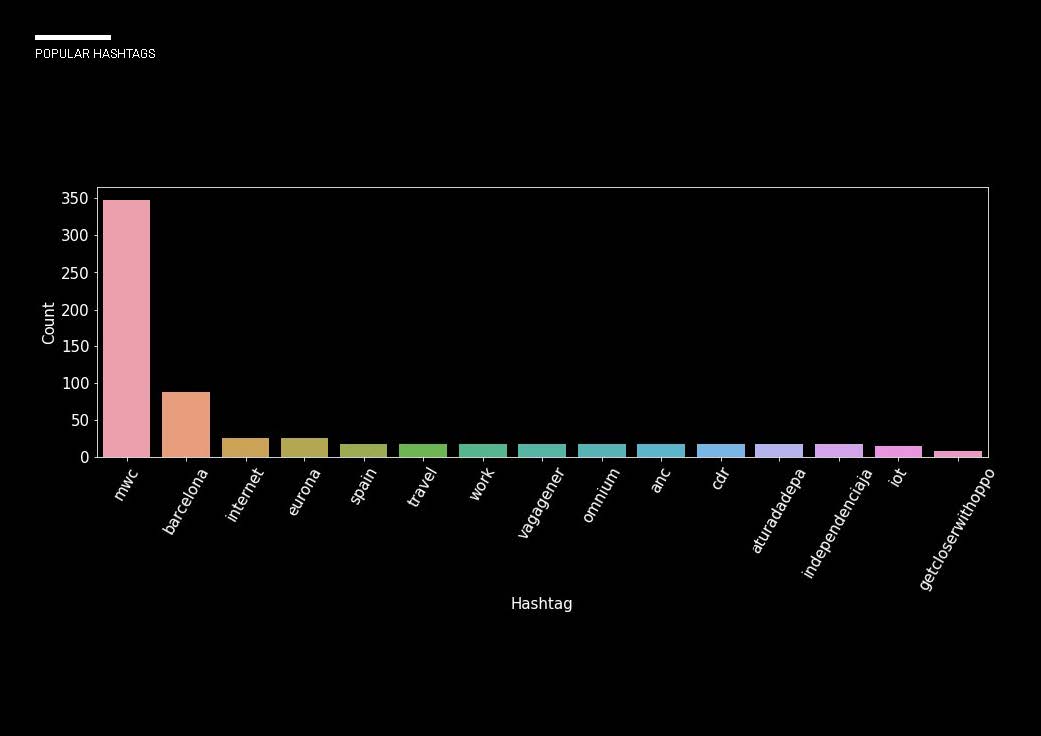
- most mentioned companies:
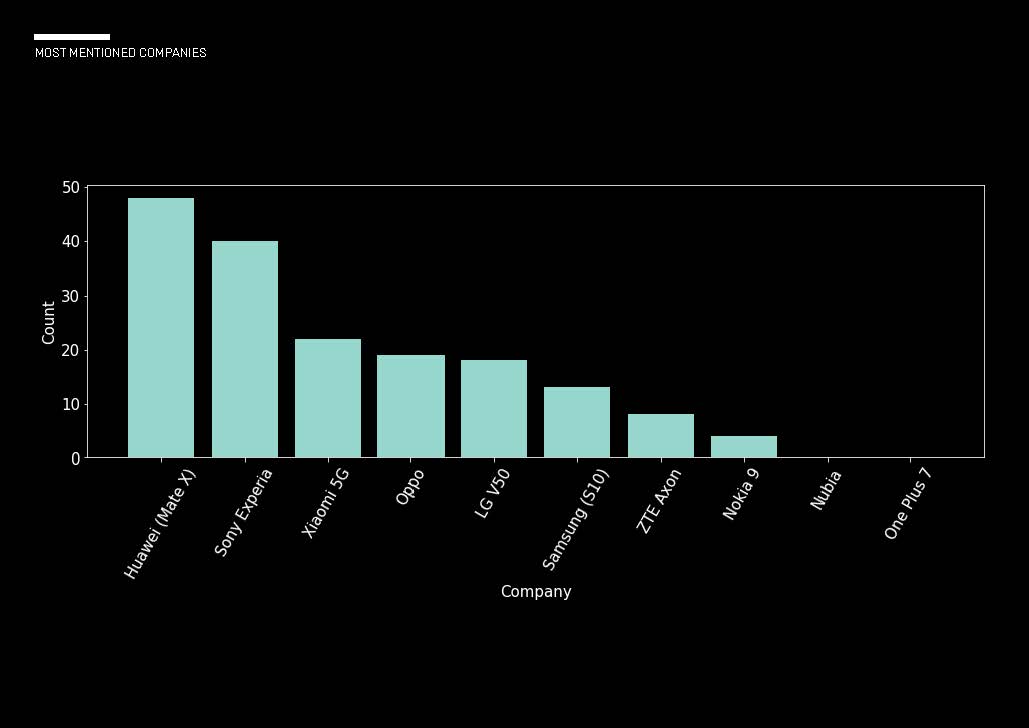
- we even picked out the most popular tweet in our collection:
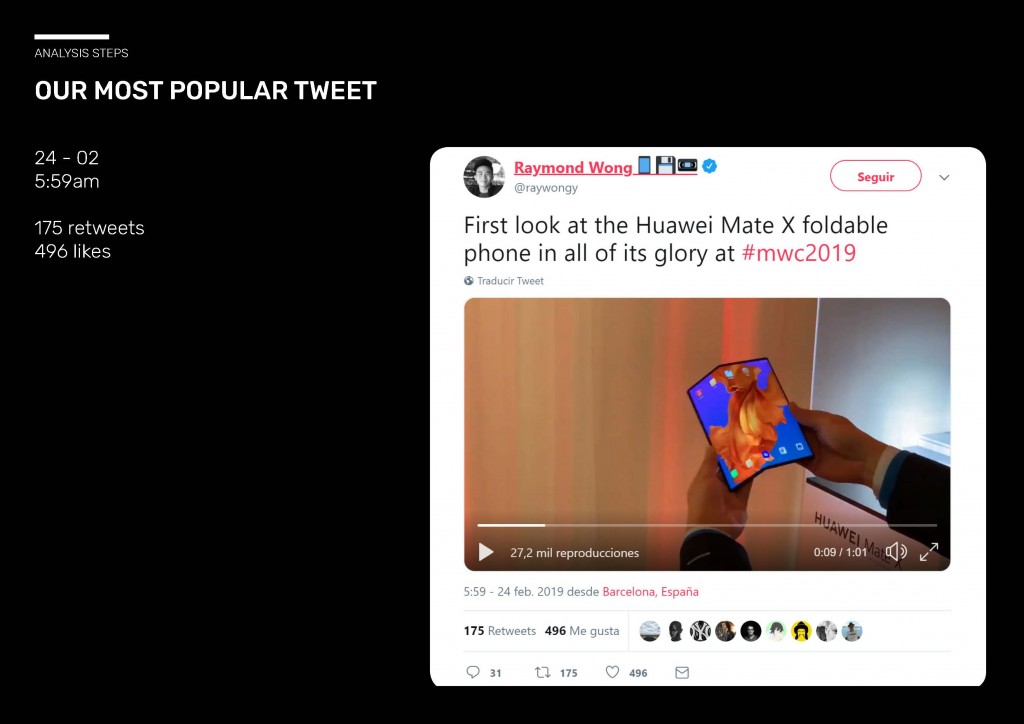
Finally, we run our sentiment algorithm, hoping to be able to extract some conclusion from the reading:
- We map the tweets distinguishing positive from negative tweets:
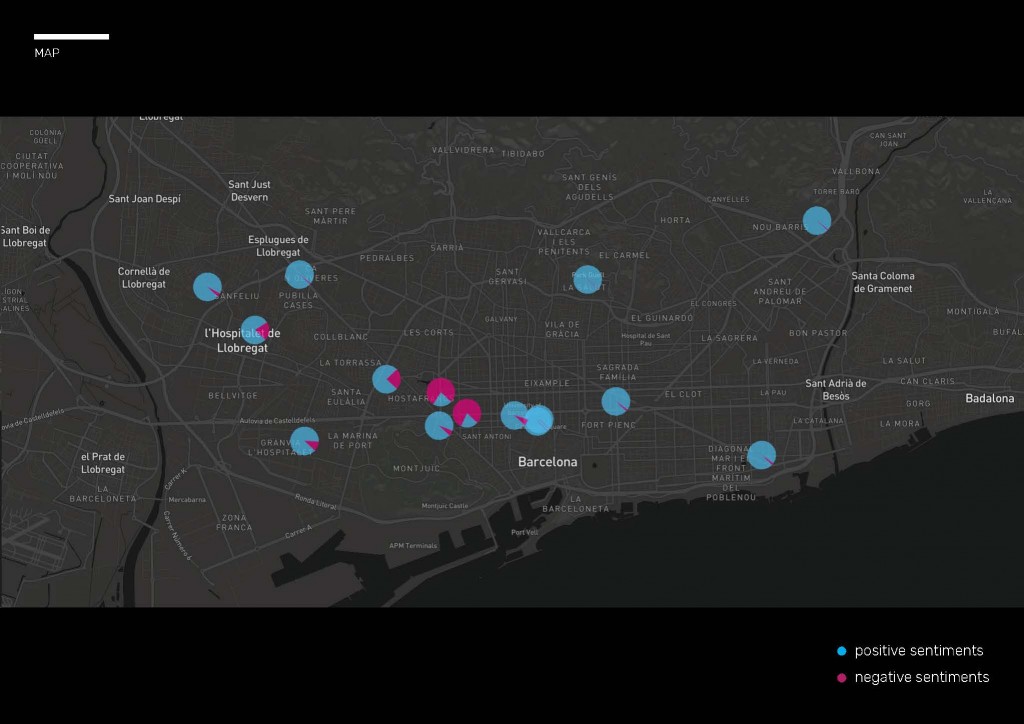
- We also map the most common words in negative and positive tweets:
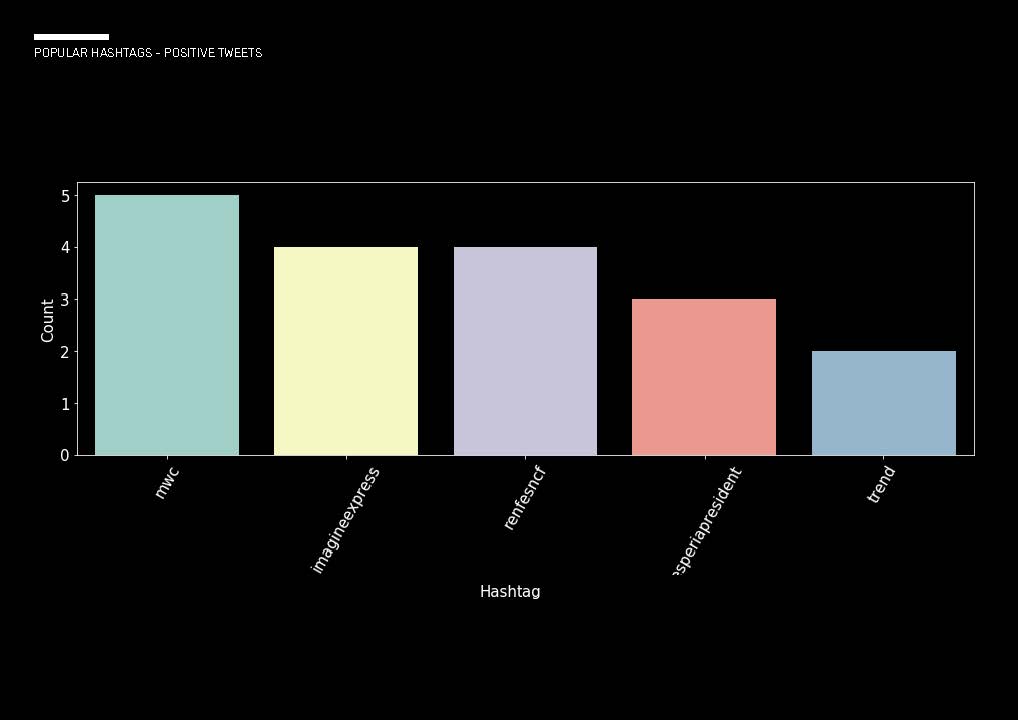
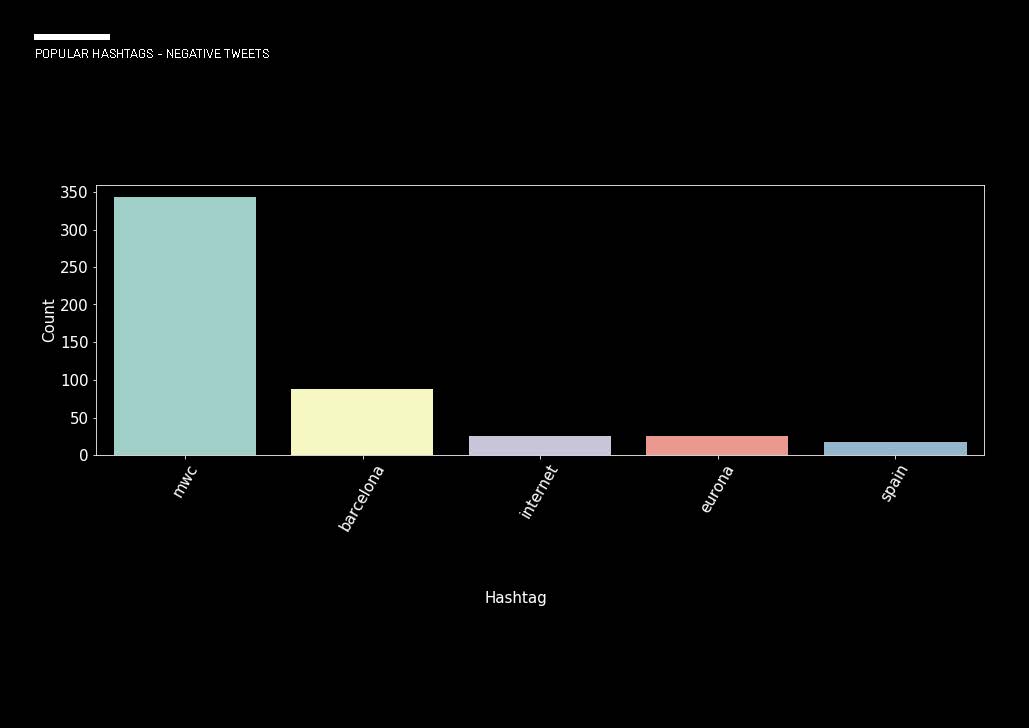
- and we chart their score, only to show that, according to the algorithm, the tweets seem abnormally negative:
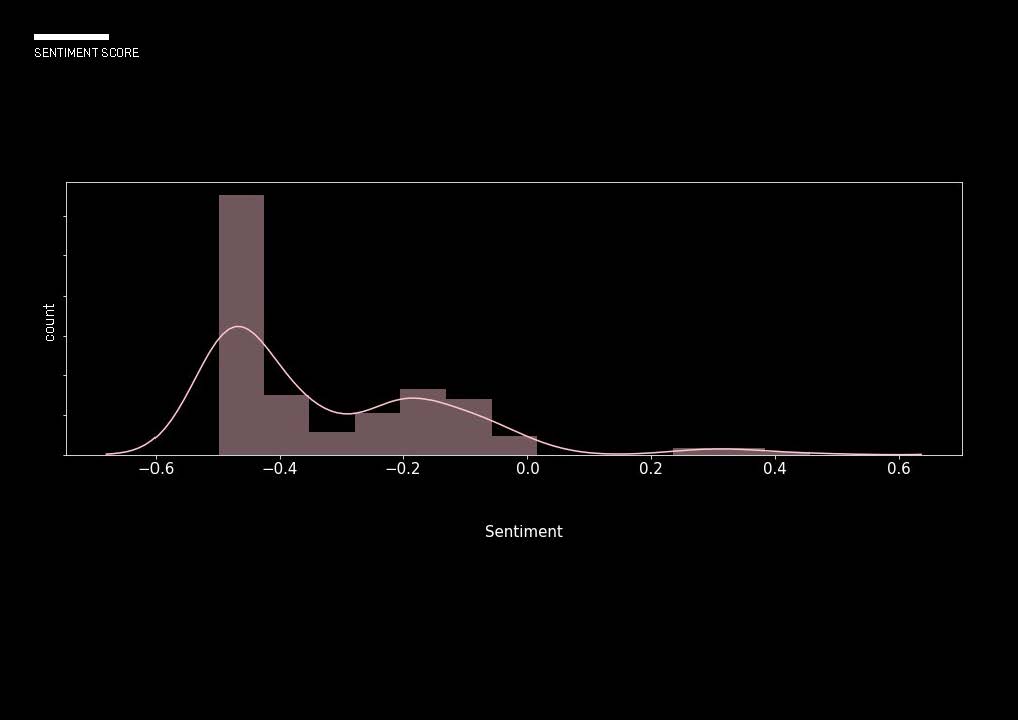
- We grew suspicious of the reliability of our algorithm, so we also went to other sources that use the same technology, but with their trained algorithms, to score the tweets with a specific mention: MWC:
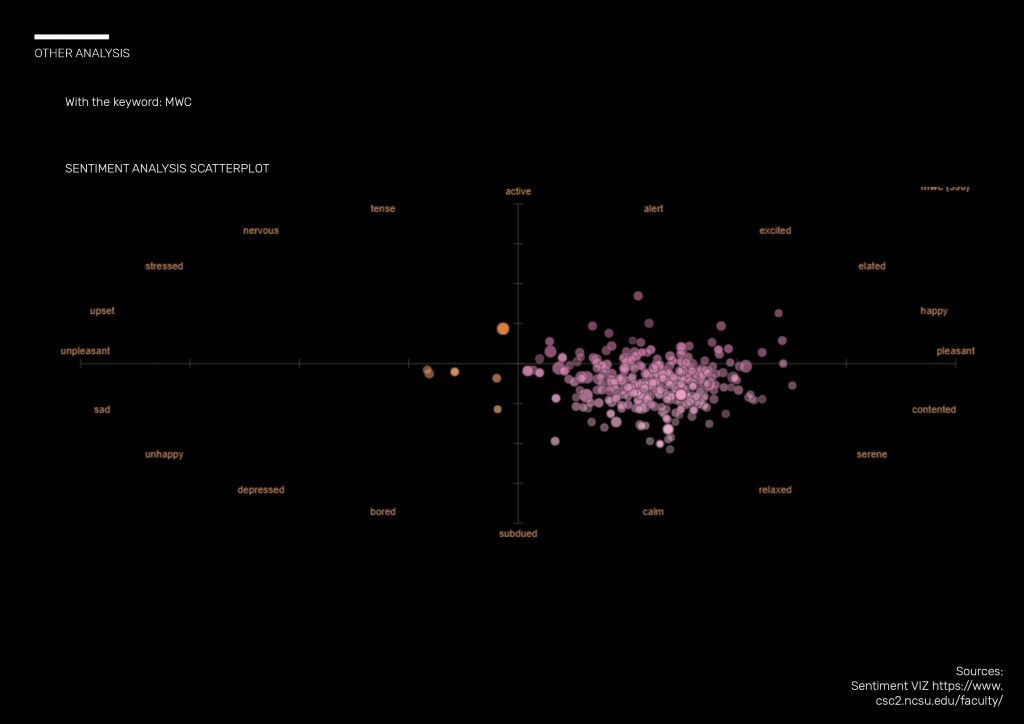
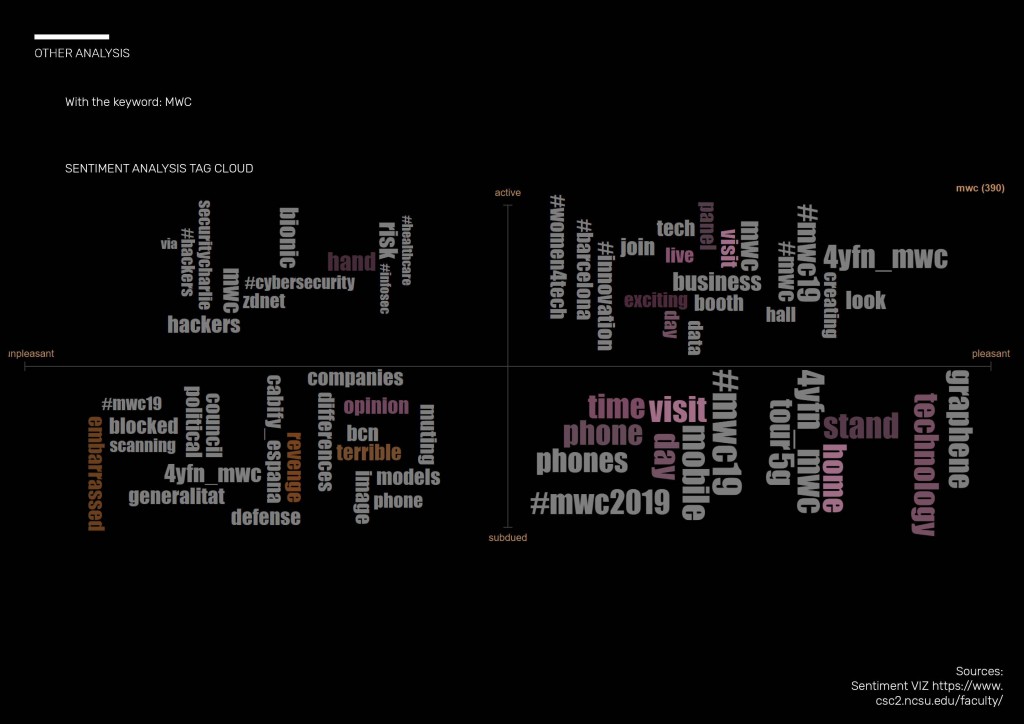
Conclusion:
It seems clear that sentiment analysis is still a very complex and challenging task for machines to read. Their algorithms rely on machine learning to improve their readings, so they require training. But mostly, we conclude that human communication is a complex (probably our most complex) social discipline that is constantly evolving. As fast as machines are evolving too, they will need to move fast if they are to catch up with the evolving subtle human language.
It is as exciting as it is unsettling to be here the day computers will breach what we believe will be their last barrier, and read human emotions better than we can.
#MWC’19 is a project of DIGITAL TOOLS 2 of IaaC, Institute for Advanced Architecture of Catalonia developed at Master in City and Technology in (2018/2019) by: